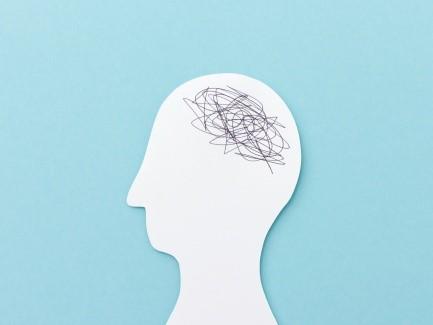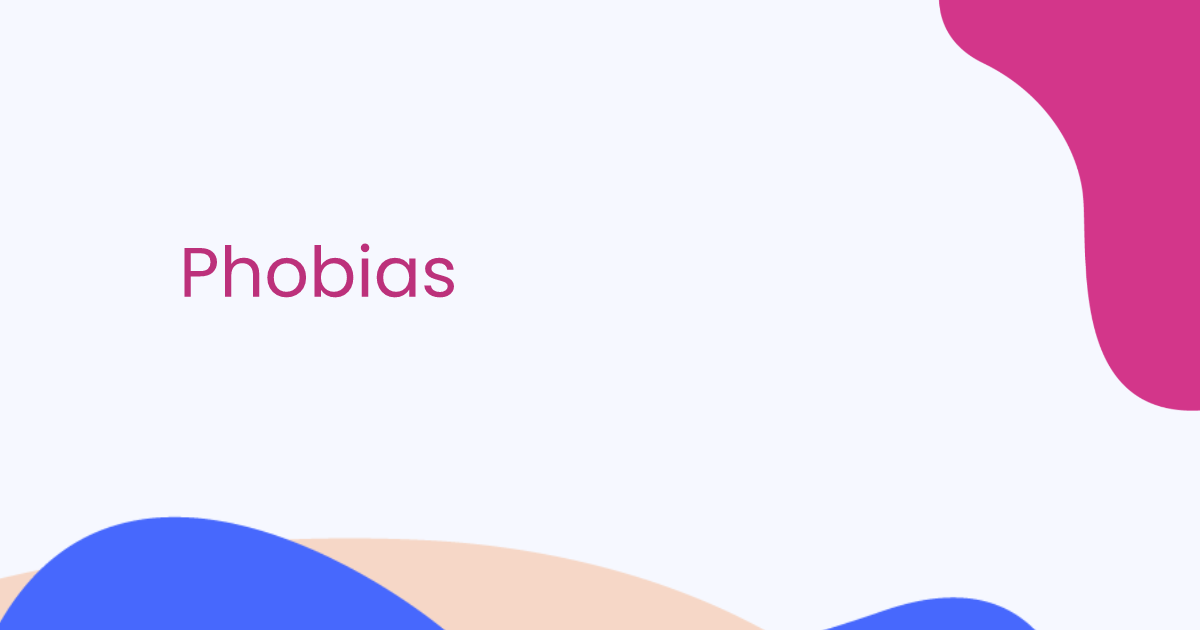Generalised anxiety disorder
Peer reviewed by Dr Rachel Hudson, MRCGPLast updated by Dr Philippa Vincent, MRCGPLast updated 29 Sept 2023
Meets Patient’s editorial guidelines
- DownloadDownload
- Share
- Language
- Discussion
In this series:AnxietySocial anxiety disorderPanic attacks
People with generalised anxiety disorder (GAD) have increased anxiety levels on most days. This often causes people to feel fearful, worried and tense.
In this article:
Continue reading below
What is generalised anxiety disorder?
What is generalised anxiety disorder?
Generalised anxiety disorder (GAD) is a mental health condition in which people experience excessive worry, fear, and anxiety most of the time. The condition can persist long-term.
Some of the physical symptoms of anxiety may come and go. Anxiety may be about various stresses at home or work, sometimes about quite minor things or things which seem minor to others. Sometimes people don't understand why they are anxious.
It can be difficult to tell the difference between normal mild anxiety in someone with an anxious personality and someone with GAD.
Symptoms of generalised anxiety disorder
Back to contentsAs a rule, symptoms of GAD cause distress and affect day-to-day activities. In addition, there will usually be some of the following symptoms:
Feeling restless, on edge, irritable,
Muscle tension or aches.
Tiring easily.
Difficulty concentrating and the mind going blank quite often.
Poor sleep (insomnia). Usually it is difficulty in getting off to sleep.
Excessive sweating.
GAD is not the diagnosis if anxiety is only about one specific thing. For example, if anxiety is usually caused by fear of one thing then it is more likely to be a phobia.
Continue reading below
Who develops generalised anxiety disorder?
Back to contentsGAD develops in about 1 in 50 people at some stage in life. Twice as many women as men are affected. It usually first develops between the ages of 20 and 30ut is frequently being recognised in older people.
What causes generalised anxiety disorder?
Back to contentsThe cause is not clear. The condition often develops for no apparent reason. Various factors may play a part. For example:
Genetic 'makeup' may be important. Some people have a tendency to have an anxious personality, which can run in families.
Childhood traumas, such as abuse or death of a parent, may make people more prone to anxiety as they become older.
A major stress in life may trigger the condition, for example, a family crisis or a major civilian trauma such as a terror attack. But the symptoms then persist when any trigger has gone. Common minor stresses in life, which may otherwise have been easily coped with, may then keep the symptoms going once the condition has been triggered.
Some people who have other mental health problems such as depression or schizophrenia may also develop GAD.
Continue reading below
How is generalised anxiety disorder diagnosed?
Back to contentsIf the typical symptoms develop and persist then a clinician can usually be confident that the diagnosis is GAD. Current guidelines from the International Classification of Diseases tenth edition (ICD-10) suggest the diagnosis should be made if the symptoms have lasted for six months but it is sometimes difficult to be sure whether the diagnosis is GAD, panic disorder, depression, or a mixture of these conditions.
Some of the physical symptoms of anxiety can be caused by physical problems which can be confused with anxiety. So, sometimes other conditions may need to be ruled out. For example:
Drinking a lot of caffeine (in tea, coffee and cola).
The side-effect of some prescribed medicines. For example, selective serotonin reuptake inhibitor (SSRI) antidepressants.
An overactive thyroid gland.
Taking some street drugs.
Certain heart conditions which cause the sensation of having a 'thumping heart' (palpitations) - uncommon.
Low blood sugar level (rare).
Tumours which make too much adrenaline (epinephrine) and other similar hormones (very rare).
How is generalised anxiety disorder treated?
Back to contentsTalking treatments and other treatments not using medication
Cognitive behavioural therapy (CBT) and GAD
Cognitive behavioural therapy is a type of therapy that deals with current thought processes and/or behaviours and aims to change them through creating strategies to deal with negative patterns, which may help to manage GAD more effectively.
Counselling
In particular, counselling that focuses on problem-solving skills may help some people.
Anxiety management courses
These may be an option if they are available. Some people prefer to be in a group course rather than have individual therapy or counselling. The courses may include learning how to relax, problem-solving skills, coping strategies and group support.
Self-help
There are lots of books or websites which can help. Understanding the condition can sometimes help reduce or manage symptoms.
Exercise has been shown to be very beneficial in GAD. Relaxation techniques or activities such as yoga or meditation can help reduce symptoms of GAD. Eating a healthy diet, avoiding caffeine and alcohol and stopping smoking can also all help GAD. Trying to be around other people also helps. Social isolation can be caused by GAD (if people are anxious to go out or feel more anxious around others) but it tends to make GAD symptoms worse; going to work or school and meeting with other people makes GAD better in the long-term.
See the separate leaflet called Stress Management.
Medication for generalised anxiety disorder
Antidepressant medication
Antidepressants are not only useful for depression but also for GAD. Studies suggest that over half the people with GAD are helped by antidepressants. It's thought that they work by interfering with the way chemicals such as serotonin work within the brain.
Antidepressants are particularly beneficial in the sub-type of GAD where anxiety is mixed with depression. SSRI antidepressants are commonly used and escitalopram and paroxetine are both licensed for this condition. SNRI (serotonin norepinephrine reuptake inhibitor) antidepressants such as venlafaxine and duloxetine are also licensed for GAD.
These medications can take a few weeks to start working. They can also have side
-effects such as dry mouth, nausea, and diarrhoea.
Tranquillisers
Benzodiazepines, such as diazepam, used to be the most commonly prescribed medicines for anxiety. They sometimes work well in the very short term but they are addictive and lose their effect if taken regularly. They may also cause drowsiness. They are not used for persistent anxiety conditions now and are not licensed for this condition.
Buspirone
Buspirone is another option to treat GAD. It is an anti-anxiety medicine but different to the benzodiazepines. It is only licensed for short-term use.
Pregabalin
Pregabalin is a medicine used for several conditions (it was initially mainly used for epilepsy but is often now used for chronic pain). It has been found useful in GAD.
Beta-blocker medicines
Beta-blockers, such as propranolol, tend to work better in short-lived (acute) anxiety rather than in GAD and so are not usually considered appropriate treatment here. However some people do benefit from regular beta-blockers.
A combination of treatments
CBT plus an antidepressant medicine may work better in some cases than either treatment alone.
Complications of generalised anxiety disorder
Back to contentsPeople with GAD are more likely than average to smoke heavily, drink too much alcohol and take street drugs. Each of these things may ease anxiety symptoms in the short term but nicotine, alcohol or drugs all make GAD worse in the long term as well as affecting general health and well-being.
What is the outlook for generalised anxiety disorder?
Back to contentsGAD gets better in many people; in others it tends to come and go. Some people need to take medicines for a long time but are otherwise able to lead perfectly normal lives.
Symptoms may flare up and become worse for a while during periods of major life stresses.
Most people can manage GAD with a combination of therapy, medication, and lifestyle changes.
Video picks for Anxiety
Patient picks for Anxiety

Mental health
Anxiety
Most people feel anxious from time to time. However, anxiety can become abnormal if it interferes with your day-to-day activities. Anxiety is a symptom of various anxiety disorders. They can often be treated. Treatments include various talking treatments and medication.
by Dr Colin Tidy, MRCGP

Mental health
Phobias
A phobia is strong fear or dread of a thing or event, which is out of proportion to the reality of the situation. The most effective treatment is cognitive behavioural therapy. Antidepressant medication also helps in many cases.
by Dr Hayley Willacy, FRCGP
Further reading and references
- Generalised anxiety disorder and panic disorder in adults: management; NICE Clinical Guideline (January 2011 - updated June 2020)
- Social anxiety disorder: recognition assessment and treatment; NICE Clinical Guideline (May 2013)
- Generalized anxiety disorder; NICE CKS, February 2023 (UK access only)
Article history
The information on this page is written and peer reviewed by qualified clinicians.
Next review due: 27 Sept 2028
29 Sept 2023 | Latest version

Ask, share, connect.
Browse discussions, ask questions, and share experiences across hundreds of health topics.

Feeling unwell?
Assess your symptoms online for free
Sign up to the Patient newsletter
Your weekly dose of clear, trustworthy health advice - written to help you feel informed, confident and in control.
By subscribing you accept our Privacy Policy. You can unsubscribe at any time. We never sell your data.